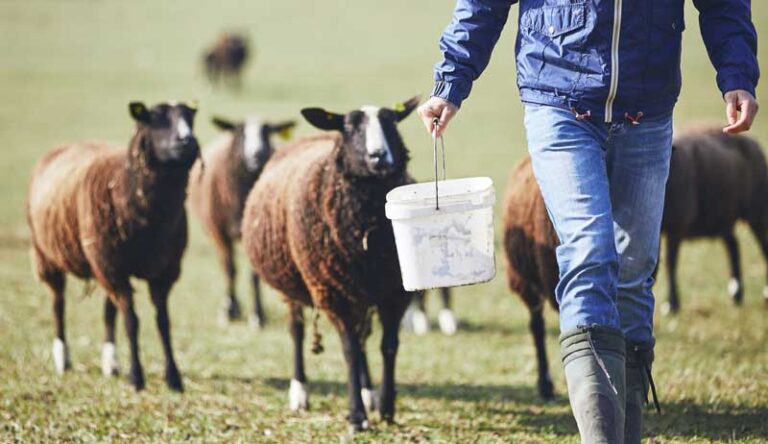You are a shepherd and have recently embarked on the exciting journey of mating season with your flock. When you herd your ewes and rams into one pasture, it’s easy to wonder if you’re meeting all of their nutritional needs.
I think it is important to focus on the specific nutritional needs of sheep, a subject often overlooked in the hustle and bustle of everyday shepherding. Your sheep can thrive on pasture, grain and clean water, but don’t underestimate the importance of vitamins and minerals supplementation.
For example, your ewes may be bred, but the Fetuses only grow slightly during the first and second trimesters. Sheep can be fed pasture or good quality grass hay. According to Purina Mills, sheep should be fed a sheep blend of minerals and vitamins to supplement the nutrient content of the forages distributed.
However, later in the gestation period, ewes will require a substantial increase in their energy and protein requirements. The ram will also need a quality diet during the breeding season, when they can lose up to 12% of their body weight!
Also remember that it is essential to keep clean, fresh water available to them at all times.
Minerals by the book
THE Merck Veterinary Manual provides valuable information on the essential minerals your sheep need:
- Salt (sodium and chlorine): Vital for overall strength, health, lactation and reproduction.
- Calcium and Phosphorus: Quantities vary depending on pasture composition, but supplementation is crucial.
- Magnesium and Sulfur: Low magnesium levels can lead to “grass tetany” and sulfur is essential for wool and hair growth.
- Potassium: Critical for optimal growth, particularly in growing lambs.
- Trace elements (Cobalt, Copper, Iodine, Iron, Manganese, Molybdenum, Zinc, Selenium): Often insufficient in forage alone, requiring supplementation.
The reality of copper toxicity, however, highlights the importance of choosing a mineral blend specifically designed for sheep. Although copper is necessary for sheep health, excessive amounts can be harmful. Opting for a well-balanced mixture suited to your herd minimizes the risk.
Delivery method: in bulk or in bulk?
Now we have to ask ourselves: are bulk minerals or mineral blocks better?
THE Virginia Cooperative Extension recommends bulk minerals. Although mineral blocks are weather resistant, they can be difficult for sheep to access. The hardness designed to shed rainwater poses challenges for your flock, and there is an added risk of broken teeth from gnawing.
The key is to provide minerals in a form that allows sheep to easily consume them when they need them. After all, you really don’t want any potential dental problems with your flock.
Here’s a pro tip: Store the mineral pan in a covered location to protect it from rain or snow. Countless times, a bowl of watery minerals greeted me, untouched by the herd. Now, as the pots are housed in the covered shed where the sheep sleep at night, they systematically find and consume them.
Buy correctly
When purchasing minerals for sheep, examine the labels carefully. The cheapest option is not always the right one and may not offer the ingredients necessary for the health of your flock. It’s an investment in the well-being of your herd, and skimping on quality can have long-term consequences.
Ensuring your herd gets the nutrients it needs is key to its growth, vitality and reproductive success. As a shepherd, you hold the well-being of your flock in your hands: make sure those hands are knowledgeable and caring.

